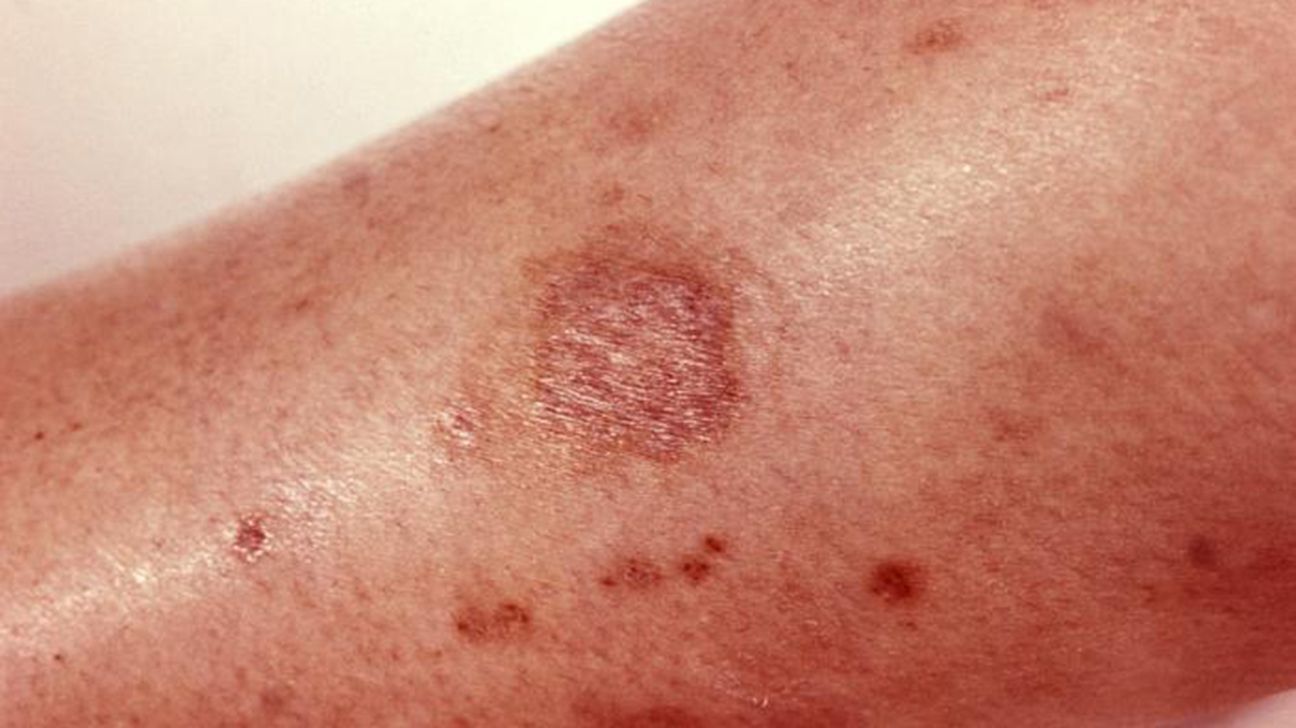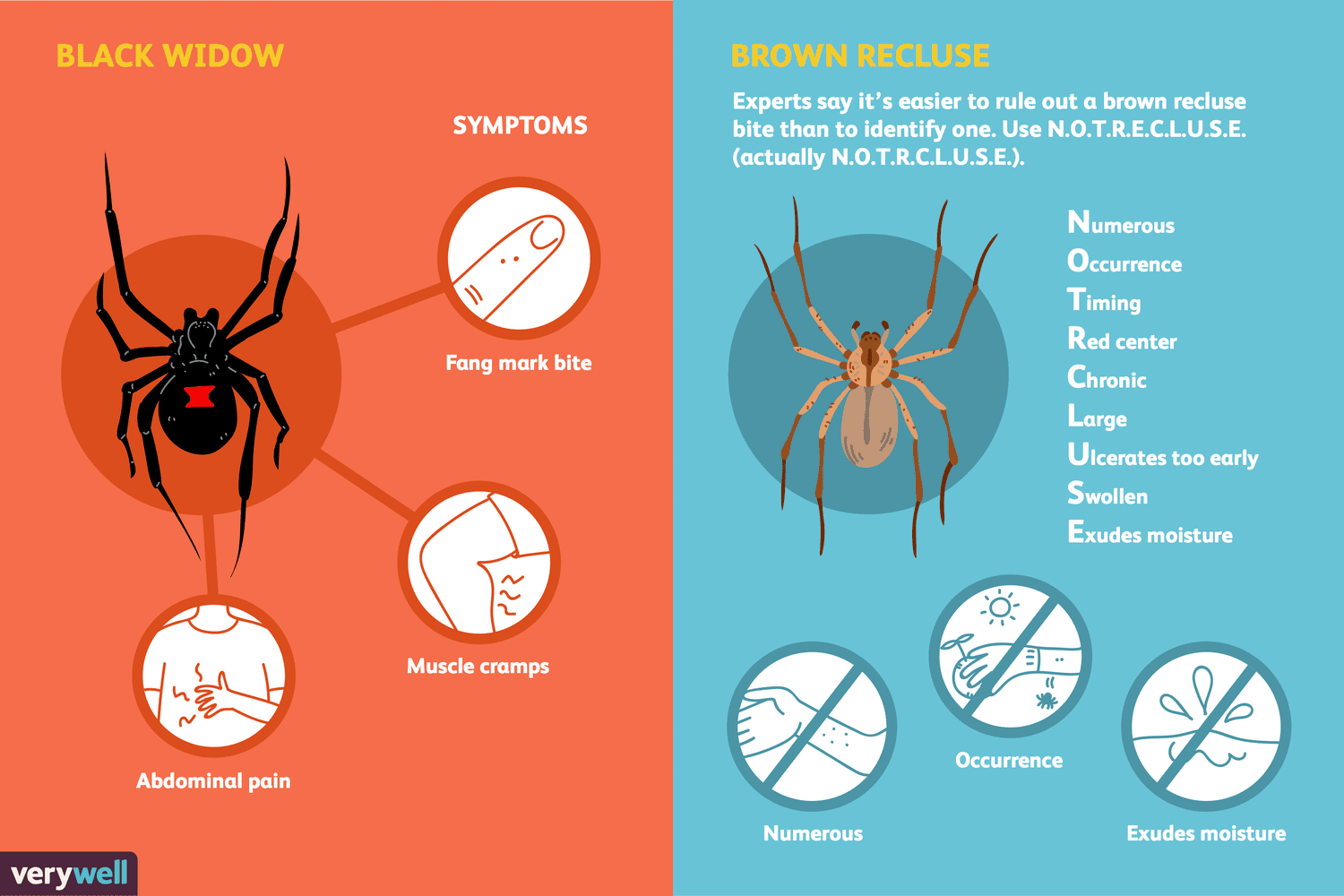To know if a spider bite is healing, watch for reduced redness and swelling. Also, observe decreasing pain levels.
Spider bites can be concerning, but with proper care and attention, they typically heal on their own. The healing process can vary depending on the severity of the bite and the individual’s immune response. Monitoring the bite site for signs of improvement, such as reduced inflammation and pain, is crucial.
Additionally, practicing good wound care, keeping the area clean and dry, and seeking medical attention if symptoms worsen can aid in the healing process. Understanding the progression of healing for a spider bite can help alleviate concerns and ensure proper recovery.

Credit: www.facebook.com
Introduction To Spider Bites
Types Of Common Spider Bites
Spider bites can be caused by a variety of species, with the most common being the black widow and brown recluse spiders. These bites can lead to different symptoms and require specific treatment.
Initial Symptoms To Watch For
When a spider bites, initial symptoms may include redness, pain, and swelling at the bite site. In severe cases, symptoms such as muscle pain, fever, and chills may develop, indicating the need for immediate medical attention.
The Healing Process
After a spider bite, it’s essential to monitor the healing process. Understanding the timeline for typical recovery and factors influencing healing time can help in assessing the progress of healing.
Timeline For Typical Recovery
Spider bite healing can vary, but typically, initial improvement occurs within 1-2 weeks.
Factors Influencing Healing Time
- Severity of the bite
- Individual’s immune response
- Presence of infection
- Underlying health conditions
Signs Of Healing
If you have been bitten by a spider, it is essential to monitor the wound for signs of healing. While some spider bites can be harmless, others can cause severe symptoms and complications. Therefore, it is crucial to seek medical attention if you experience any concerning symptoms.
Reduction In Swelling And Redness
One of the most apparent signs that a spider bite is healing is a reduction in swelling and redness. Initially, spider bites can cause significant swelling and redness, which may spread to other parts of the body. However, as the wound starts to heal, the swelling and redness should begin to subside.
If you notice that the swelling and redness are spreading or getting worse, it could be a sign of a more severe infection. In this case, seek medical attention immediately.
Decrease In Pain And Discomfort
Another sign that a spider bite is healing is a decrease in pain and discomfort. Initially, spider bites can cause severe pain and discomfort, which may worsen over time. However, as the wound starts to heal, the pain and discomfort should gradually decrease.
If you experience persistent or severe pain, it could be a sign of a more severe infection or complication. Therefore, it is crucial to seek medical attention if you experience any concerning symptoms.
Overall, monitoring the signs of healing is crucial when it comes to spider bites. If you notice a reduction in swelling and redness or a decrease in pain and discomfort, it is a good indication that the wound is healing. However, if you experience any concerning symptoms, seek medical attention immediately.
Complications To Be Aware Of
When a spider bite is healing, it’s crucial to watch out for any complications that may arise. Being aware of potential issues can help you ensure proper healing and avoid further problems. Here are some complications to be aware of:
Signs Of Infection
- Redness, warmth, or swelling
- Pus or drainage from the bite
- Fever or chills
When To Seek Medical Attention
- If you notice expanding redness or red streaks
- If the pain and swelling worsen
- If you develop a fever
Home Remedies For Faster Recovery
As spider bites can cause serious infections, it’s important to know if the wound is healing properly. Home remedies such as applying aloe vera or tea tree oil can help speed up the recovery process. Look out for signs of reduced swelling, redness, and pain to determine if the bite is healing.
Applying Ice
One effective home remedy for faster recovery from a spider bite is applying ice to the affected area. Ice helps to reduce swelling and inflammation, providing relief from pain and itching. To apply ice, follow these simple steps:
- Wrap a few ice cubes in a clean cloth or place them in a ziplock bag.
- Gently press the ice pack onto the spider bite for about 10 minutes.
- Remove the ice pack and wait for a few minutes before reapplying.
- Repeat this process several times a day for optimal results.
Elevating The Affected Area
Elevating the affected area is another helpful home remedy to aid in the healing process of a spider bite. By elevating the area, you can reduce swelling and promote better blood circulation, which can speed up recovery. Follow these steps to elevate the affected area:
- Find a comfortable position where you can elevate the bitten area above your heart level.
- Use pillows or cushions to support the area and maintain the elevation.
- Try to keep the area elevated for at least 15-20 minutes every hour.
- Continue elevating the affected area throughout the day to facilitate healing.

Credit: www.healthline.com
Medical Treatments
When dealing with a spider bite, it’s essential to understand the medical treatments available for promoting healing and preventing complications. Medical interventions can be crucial for managing symptoms and ensuring a smooth recovery.
Antibiotics For Infected Bites
In cases where a spider bite becomes infected, antibiotics may be prescribed to combat the bacterial infection. These medications are aimed at eliminating the infection and preventing it from spreading further.
Tetanus shots: Are they necessary?Tetanus Shots: Are They Necessary?
For individuals with spider bites, the necessity of tetanus shots depends on various factors, including the nature of the bite and the individual’s vaccination history. Tetanus shots are administered to prevent tetanus, a potentially serious bacterial infection.
Prevention Tips
Prevention is always better than cure. Taking measures to avoid spider bites is the best way to keep yourself protected from the painful symptoms of spider bites. Here are some prevention tips that you can follow:
Avoiding Spider-prone Areas
Spiders love to hide in dark and damp places, so it’s best to stay away from such areas. If you’re going for a hike or a walk, try to avoid walking through areas that are covered in thick vegetation, such as bushes and tall grass. These areas are more likely to be home to spiders.
Using Insect Repellent Effectively
Insect repellents can be an effective way to keep spiders away. However, it’s important to use them correctly. Make sure you apply the repellent on all exposed skin, especially on your arms and legs. When applying insect repellent, avoid spraying it on your face, as it can be harmful if it gets into your eyes or mouth.
If you’re using a spray repellent, make sure you spray it in a well-ventilated area to avoid inhaling the fumes. Also, make sure you reapply the repellent every few hours, especially if you’re sweating or swimming.
Wearing Protective Clothing
Wearing protective clothing can help prevent spider bites. Wear long-sleeved shirts and pants, and tuck your pants into your socks or shoes. This will help keep spiders from crawling up your legs and biting you.
Keeping Your Home Clean
Keeping your home clean is another way to prevent spider bites. Spiders love cluttered and dusty areas, so make sure you keep your home clean and tidy. Dust and vacuum regularly, and keep your clothes and shoes in closed closets or drawers.
By following these prevention tips, you can reduce your risk of getting bitten by a spider. If you do get bitten, it’s important to monitor the bite and seek medical attention if necessary. Knowing how to identify the signs of a healing spider bite can also help you determine whether you need to seek medical attention or not.

Credit: www.everydayhealth.com
Frequently Asked Questions
How Long Does It Take For A Spider Bite To Heal?
The healing time for a spider bite can vary depending on the severity of the bite and individual factors. In general, most spider bites heal within 1 to 2 weeks with proper care and treatment. However, if the bite shows signs of infection or doesn’t improve after a few days, it’s important to seek medical attention.
What Are The Signs Of A Healing Spider Bite?
As a spider bite heals, you may notice certain signs of improvement. These can include reduced redness and swelling around the bite area, decreased pain or itching, and the formation of a scab or crust over the bite. It’s important to monitor the healing process and consult a healthcare professional if any concerning symptoms arise.
Can A Spider Bite Heal On Its Own?
In many cases, a spider bite can heal on its own with proper care and hygiene practices. However, it’s important to closely monitor the bite for any signs of infection or worsening symptoms. If the bite doesn’t show signs of improvement after a few days or becomes increasingly painful or swollen, it’s recommended to seek medical attention for further evaluation and treatment.
How Can I Help The Healing Process Of A Spider Bite?
To aid in the healing process of a spider bite, it’s important to keep the affected area clean and dry. Applying a warm compress or taking over-the-counter pain relievers can help alleviate discomfort. Avoid scratching the bite to prevent further irritation or infection.
If symptoms worsen or persist, consult a healthcare professional for appropriate treatment options.
Conclusion
Monitoring the symptoms and seeking medical attention can indicate the healing progress of a spider bite. Follow the recommended treatments and keep the affected area clean to promote healing. It’s important to be aware of any unusual changes and consult a healthcare professional for proper guidance throughout the healing process.
Related posts:

I’m MD Tanvir, and I bring years of expertise gained from working closely with pest control companies to the forefront. My journey in the industry has inspired me to launch Bug Battler, a platform aimed at equipping people with the know-how to combat pests autonomously. Through Bug Battler, I aim to empower individuals with practical insights to tackle pest infestations effectively.

